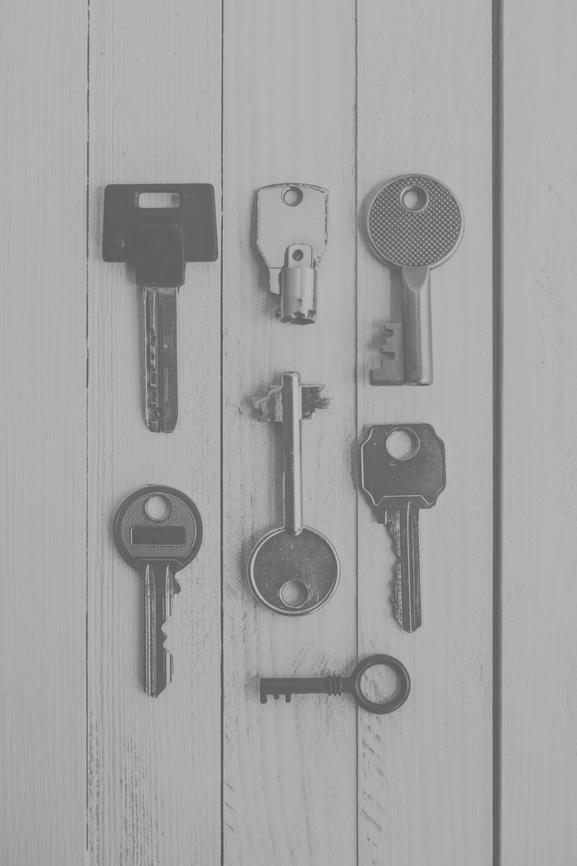Question of the Week
Happy Pride!
Happy Friday and Happy Pride, everyone!
June is LGBTQ Pride Month across the country. I love this time of year — the Pride parties, parades, and the overall good energy as people – members of the community and allies – celebrate LGBTQ pride. And as places all over the country continue to open up, it looks like we will be able to all celebrate together!
The Pride movement has evolved from the riots and protests that created awareness of deep-seated problems and energized people to take action to make substantial change. It was become mainstream and somewhat exploited by big businesses. So at the start of this month, I wanted to reflect on where we came from and the work we still need to do.
The Catalyst
In the early morning of June 28th, 1969, eight officers from the New York City’s Public Morals Division, a police department unit, raided the Stonewall Inn, a gay bar in New York City’s Greenwich Village. This raid wasn’t unusual in New York (or many other cities). Back then, the Public Morals Division enforced all laws for vice and gambling, including prostitution, narcotics, and homosexuality. Cops could arrest and even force the hospitalization of gay people.
On this particular evening, however, the bar patrons fought back. It started when Marsha P. Johnson cried, “I got my civil rights!” and threw a shot glass into a mirror (now known as “the Shot Glass that was Heard Around the World”). More and more patrons joined the fight, including people from neighboring bars, and mayhem ensued. Hundreds of people resisted arrest and fought against police oppression. Rioters broke windows, set cars on fire, and injured three police officers. The police ended up barricading themselves inside the Stonewall Inn.
New York City’s Tactical Patrol Force intervened, but even they were run out of the neighborhood by the rioters. Things eventually calmed down. But once the word got out about the riots, thousands returned the next night to continue the protest. The protest lasted six days.
Increasing Our Pride
Stonewall was not the start of the LGBTQ movement. LGBTQ activists have been organizing since at least the 1920s. But the rage and fervor caused by the Stonewall riots helped catapult the LGBTQ movement to a new level.
Media coverage of the riots allowed others to see the LGBTQ struggle for themselves and relate to and support those fighting for their rights. Events at Stonewall encouraged others to do what they could to help.
The following year, the anniversary of the Stone Wall riots was marked by demonstrations in New York, Chicago, Los Angeles, and San Francisco.
At first, the New York City day of celebration was called “Christopher Street Liberation Day.” In Los Angeles and San Francisco, these events became known as “Gay Freedom Marches,” and the day was called “Gay Freedom Day.” Chicago had Gay Pride Week.
The parades were a mix of politics and celebration. They promoted the visibility of the LGBTQ community. They also served as a massive megaphone for the LGBTQ needs and rights — like protection against harassment, raising awareness of the AIDS epidemic, or fighting for marriage equality. They gave a growing LGBTQ movement a voice and, as support grew, that voice began to be heard.
The culture shifted in the 1980s, as less radical activists began taking over the march committees in different cities. They dropped “Gay Liberation” and “Gay Freedom” from the names, replacing them with “Gay Pride.”
LGBTQ Rights Today
The first few marches drew only a few hundred people, but today’s Pride parades include hundreds of thousands. The Chicago Pride Festivals since 2013 have had crowds of more than one million people. The City postponed the parade because of Covid, but there will still be plenty of celebrating.
We’ve come a long way from the police brutality and stigmatization of the 1970s. We’ve also made it through the AIDS crisis of the 1980s and 1990s. The parades have long been the voice and coming together of the LGBTQ community to celebrate our lives.
Today we can get married and legally adopt children in all 50 states. The Supreme Court also ruled that gay and transgender people are protected against employment discrimination under the law. Despite this progress, we still have particular obstacles when it comes to financial planning.
I’ve written a lot about these specific needs:
- The History of Pride Month And What It Can Teach Us About Moving Forward Today
- 5 Ways LGBTQ Planning Is Different
- Planning For LGBTQ Couples: Distinct Financial Challenges Exist
- The Top 10 Financial Planning Concerns For Unmarried Couples
- How Advisors Can Help LGBTQ Clients With Planning
I hope you find this background helpful and enables you to appreciate just how far we’ve come and the work we still need to do.
Quote of the Week
“I’m not missing a minute of this. It’s the revolution!” – Sylvia Rivera
Task of the Week
Pride is about loving, accepting, and celebrating who you are — strengths, weaknesses, and everything else that makes you unique. So take a moment and reflect on what makes you most proud.



